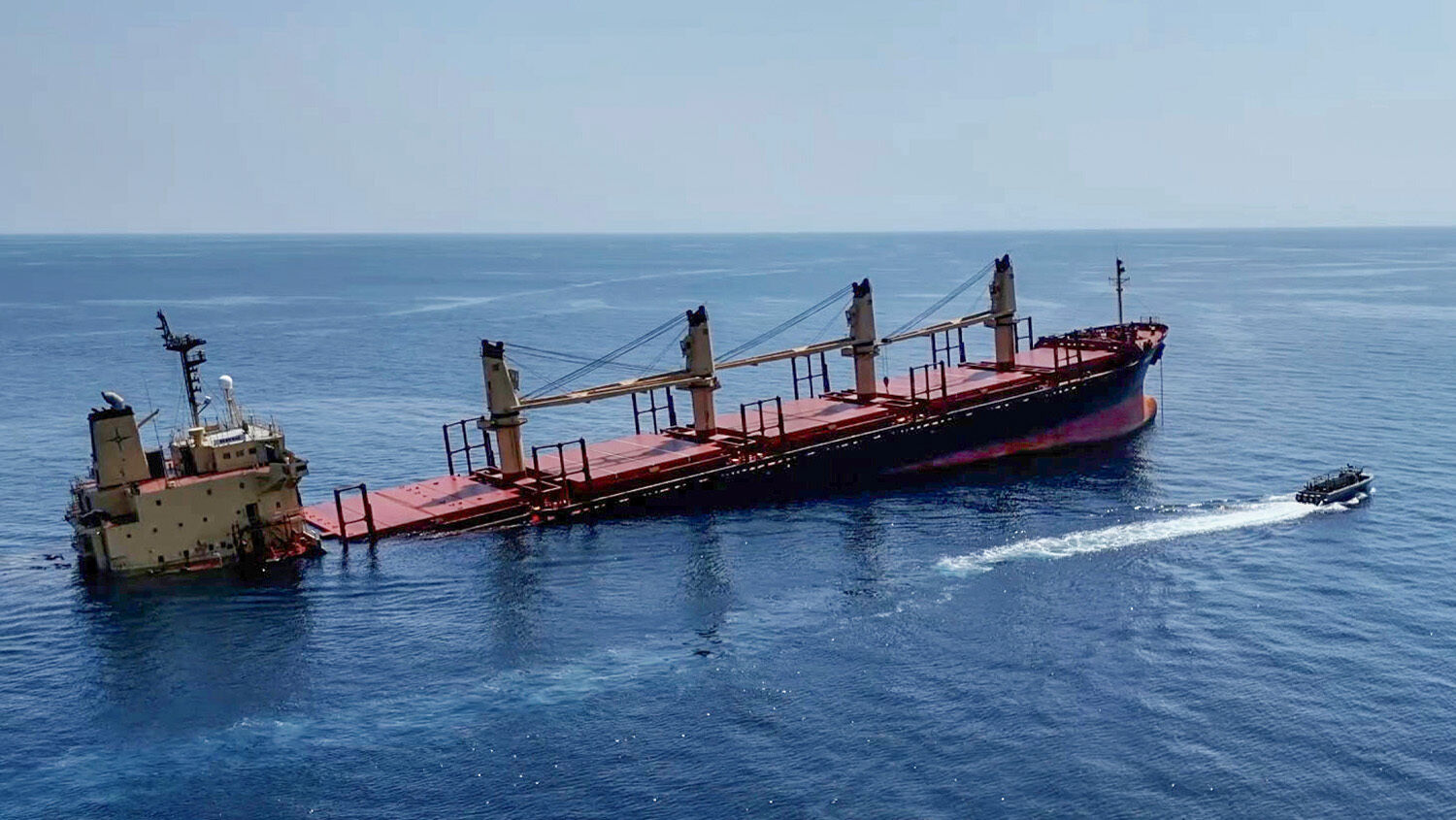
Houthis: Mediterranean Shipping Is Fair Game
Yemen’s Houthi terrorist group announced on May 3 it will begin targeting Israel-bound ships in the eastern Mediterranean in what it calls its “fourth phase of escalation.” The Houthis have been attacking merchant ships and other vessels in the Red Sea headed to Israel since November, but this is the first time they have aimed this far north. Though based in Yemen, they have weapons that can reach as far as the Mediterranean Sea. This includes the Shahed-136 “kamikaze drone” made famous in Russia’s war against Ukraine.
The Houthis declared war with Israel in solidarity with their fellow Iranian proxy Hamas. Their campaign has significantly disrupted Israel’s economy. Israel estimates its southern port of Eilat lost 80 to 85 percent of expected revenue between November and December 2023.
Given the distance, it’s unlikely the Houthis will be able to shake up Israel’s trade in the Mediterranean as much as they have in the Red Sea. But it means they intend to hit an area in Europe’s backyard. Even if they don’t hit European soil directly, attacking Mediterranean targets would be a strong challenge.
The Houthis get most of their sponsorship from Iran. They probably wouldn’t have announced this without a green light from Tehran. But Iran has ordered some of its other proxies, like Lebanon’s Hezbollah and the Syrian government, to stand down and not escalate the war. Even Hamas isn’t activating all its assets in the West Bank yet. The Houthis are the one group Iran is encouraging to cause as much chaos as possible. Yet even as Europe increases its presence in the Red Sea, the Houthis are pushing closer to Europe. The implication? The Houthis—and therefore, Iran—don’t think Europe will respond. They see Europe as weak. They think they can keep pushing with no response.
At the time of writing, the Houthis haven’t made good on their threat. They have time to back off from the Rubicon. But even threatening to hit the Mediterranean is surely catching Europe’s attention.
The Trumpet has long expected such provocation by Iran and its proxies against Europe because of a prophecy in the book of Daniel: “And at the time of the end shall the king of the south push at him: and the king of the north shall come against him like a whirlwind, with chariots, and with horsemen, and with many ships; and he shall enter into the countries, and shall overflow and pass over” (Daniel 11:40).
This is an end-time prophecy concerning two power blocs: “the king of the north” (which biblical and secular history shows to be a uniting European power) and “the king of the south” (which we have identified since the 1990s as an Islamist bloc led by Iran). Trumpet editor in chief Gerald Flurry’s booklet The King of the South goes into more detail.
The prophecy reveals these two blocs will go to war. Although the main description is contained in only one verse, there are many details one can gleam. The emphasis on Iran’s starting attack is a “push.” The root word, according to Gesenius’ Hebrew-Chaldee Lexicon, means “to push, to strike with the horn.” The Bible uses it “figuratively of a victor, who prostrates the nations before him.”
The Mediterranean and Red seas “comprise the most important trade route in the world,” Mr. Flurry writes. “If Iran gets control of that trade route, it could create enormous damage and chaos in America and Europe almost overnight.”
Disrupting world trade is a big way Iran can push at Europe. Iran has already demonstrated its power over world trade through the Houthis’ attacks in the Red Sea. But the Mediterranean is a whole different ballgame.
“Germany in particular is upset and angry over the economic loss caused by Iran,” Mr. Flurry wrote in our latest Trumpet issue.
All its commercial ships have had to detour around South Africa. For this reason alone, this could become the big push of Daniel 11:40. We don’t know yet, but this certainly looks like it could fit that prophetic description in a spectacular way. We need to watch the situation closely.
Watch the Houthis and the Mediterranean closely. If the current tensions morph into the push, know that Bible prophecy is being fulfilled. And know that, ultimately, God controls events to fulfill His purpose. Knowing this will help weather the storms ahead.
To learn more, read Mr. Flurry’s article “Is the Red Sea Crisis About to Fulfill Bible Prophecy?”
